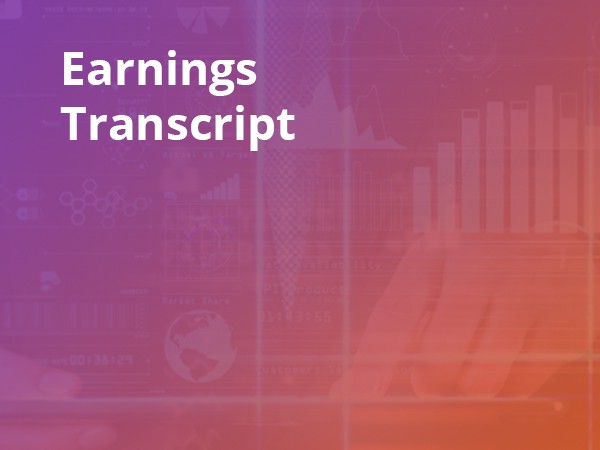When you start an online store or any kind of ecommerce business, you’re thinking about selling lots of products, not collecting taxes. However, you do need to address the practical side of the company. You don’t want to get into trouble or have to go back and correct mistakes you made early on. Here are eight key tips to help you stay compliant so you can focus on the more exciting aspects of your business.
Figure Out Where You Owe Sales Tax
Sales tax is the main issue with ecommerce. Knowing how much, if any, sales tax to collect is often more complicated than it seems at first. You have to consider your state’s sales tax. You also have to adjust your approach based on your selling model.
New online entrepreneurs need to understand the meaning of sales tax nexus, which refers to where you have to collect sales tax. If you have a physical presence in a state, you need to collect sales tax there, which is pretty straightforward.
A few states, such as Oregon, New Hampshire, Delaware, Alaska, and Montana, don’t have sales tax. However, if you sell above a certain threshold in a state, you may have to collect in that state as well, even if you’re not there in person. So even if you live in a state without sales tax, you may need to collect it. This is why it’s essential to track your sales and know if you’re above the state’s threshold for collection.
#mc_embed_signup{background:#fff; false;clear:left; font:14px Helvetica,Arial,sans-serif; width: 600px;}
/* Add your own Mailchimp form style overrides in your site stylesheet or in this style block.
We recommend moving this block and the preceding CSS link to the HEAD of your HTML file. */
Sign Up for The Start Newsletter
(function($) {window.fnames = new Array(); window.ftypes = new Array();fnames[0]=’EMAIL’;ftypes[0]=’email’;fnames[1]=’FNAME’;ftypes[1]=’text’;fnames[2]=’LNAME’;ftypes[2]=’text’;fnames[3]=’ADDRESS’;ftypes[3]=’address’;fnames[4]=’PHONE’;ftypes[4]=’phone’;fnames[5]=’MMERGE5′;ftypes[5]=’text’;}(jQuery));var $mcj = jQuery.noConflict(true);
Consider How Your Business Model Impacts Taxes
Tax obligations vary depending on what kind of goods or services you sell and how you sell them. Storing physical products, for example, creates a tax nexus in your state (assuming your state has sales tax). On the other hand, dropshipping, where you don’t store goods at all, doesn’t absolve you from tax obligations.
If Amazon FBA or Walmart Fulfillment Services stores your items, you may have a tax nexus in every state where your products are stored. Whether you store your own goods or dropship, you need to keep track of where everything is sourced from and stored. Some states offer sales tax exemption certificates for dropshipping.
Learn the Tax Collecting Policies of Marketplaces
When you sell on platforms such as Amazon, Walmart, and others, they often collect sales tax automatically. This can lead sellers who use these sites to assume they don’t have to think about taxes at all. This isn’t always the case, though. For example, if you store products in a state with sales tax, this may create a nexus, apart from collections done on your behalf by the marketplace. And, once again, you may also incur obligations if you sell above a certain amount in a state.
Using marketplaces such as Amazon, Walmart, or Shopify can make tax collections easier, but you can’t assume that they’ll just automatically fulfill all your obligations. It’s still necessary to track your sales and be familiar with where your products are shipped from and stored.
Be Sure to Classify Your Products Accurately
Not all products are taxed the same. Some states either exempt or provide reduced rates for particular items. Many states, for example, don’t impose a sales tax on groceries. The tricky part is making sure your products are placed in the right categories. Soft drinks, gum, and candy are examples of items that may or may not be considered groceries depending on the state.
When you track items on your ecommerce platform, as well as in the tax software you use, be careful about placing the SKU of each product into the proper tax category. If you aren’t sure about a particular product, research it. Keep in mind that some sales may involve bundles or kits, in which case you need to consider the category of each item.
Keep Clean Records
Don’t be one of those sellers who postpone record-keeping until the last minute. Good records require you to draw a clear line from order to deposit. Store digital copies of all pertinent data, including:
Invoices
Refunds
Shipping charges
Exemption certificates
Marketplace statements
While some of this data will be redundant, it’s better to have more information than you need than not enough. Maintain a simple folder structure on your cloud drive to easily store and access information. Even if you use software, it’s good to keep a dedicated file for your records that you can always go back to.
Verizon Small Business Digital Ready
Find free courses, mentorship, networking and grants created just for small businesses.
Make Your Job Easier With Software
There’s no reason you have to do all your calculations manually. Using the right business software makes it much more efficient to figure out taxes. Most platforms, such as Amazon, are easy to integrate with software. Likewise, you can connect your bank accounts and payment processors to the software. You can create rules for recurring items such as processor fees, postage, and packaging. You can also factor in costs such as ad spend, which is helpful for your income taxes.
If you’re not familiar with tax software, there can be a bit of a learning curve. However, once you get comfortable with the program, you’ll find it convenient, as many tasks are automated. If you sell products worldwide, be sure your program is equipped to handle VAT/GST taxes and keep transactions for different countries separated.
Keep Track of Credits and Deductions
Many costs associated with an ecommerce business can be deducted. At the same time, you need to be careful only to claim deductions to which you’re entitled. As tax laws are constantly changing, you need to stay current with the latest rules. Some deductions that you may be able to claim include:
Software subscriptions include business and tax software.
Packaging and shipping supplies.
Advertising and marketing costs include PPC ads.
Platform and marketplace fees. For example, fees you pay for Amazon, Shopify, or Etsy.
Home office. This has to be a place where most of the work for your business is conducted.
Measure the space you use, as the size of the space determines the amount of the deduction.
Track all of your expenses and keep receipts. If you aren’t sure about credits and deductions, it’s helpful to talk to a tax professional when you’re starting.
Create a Compliance Calendar
Small business taxes can be complicated when you have to deal with multiple filing deadlines, as many online sellers do. You want to make it easy for yourself to meet all your deadlines. Different states set sales tax filing requirements based on sales volume.
You may owe taxes to different states at various times, making it essential to keep all your data in one place. Keep in mind that some states require you to file even if you have zero sales for the period. You can set reminders in your accounting and tax tools.
Consider Your Taxes All Year Round
Taxes are much easier to deal with when you track everything consistently, keep good records, and plan for deadlines well in advance. They can become overwhelming when you procrastinate or don’t prepare properly. Find the right software, make sure you research your obligations, and talk to a tax professional if you aren’t clear about anything.
Photo by S O C I A L . C U T on Unsplash
The post 8 Tax Basics Every Ecommerce Entrepreneur Should Master Before Day One appeared first on StartupNation.

























